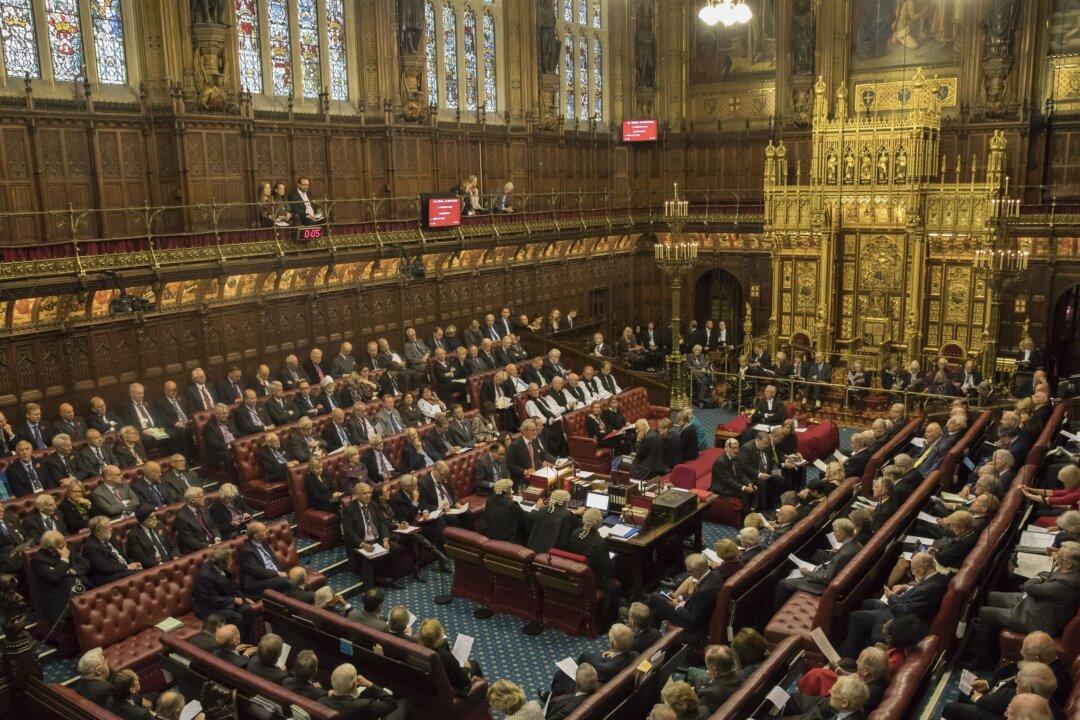The House of Lords has inflicted a number of defeats on the UK government over its plans to clamp down on “disruptive protests.”
The UK government on Jan. 16 announced plans to give police more powers to tackle “disruptive protests” such as those organised by climate activists, allowing officers to intervene before protests become highly disruptive.





